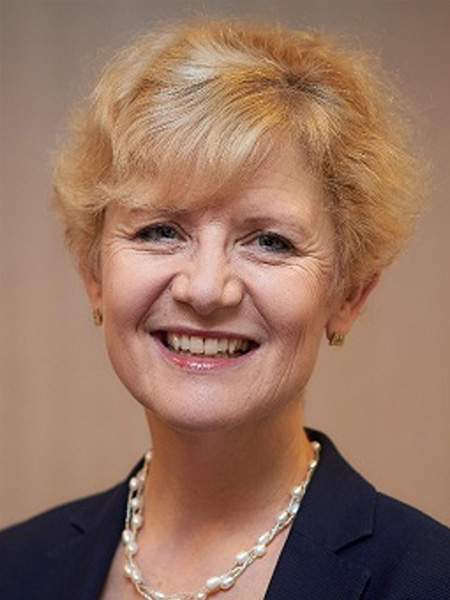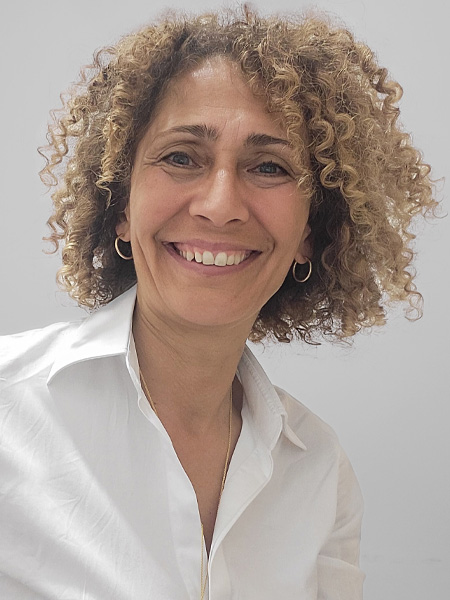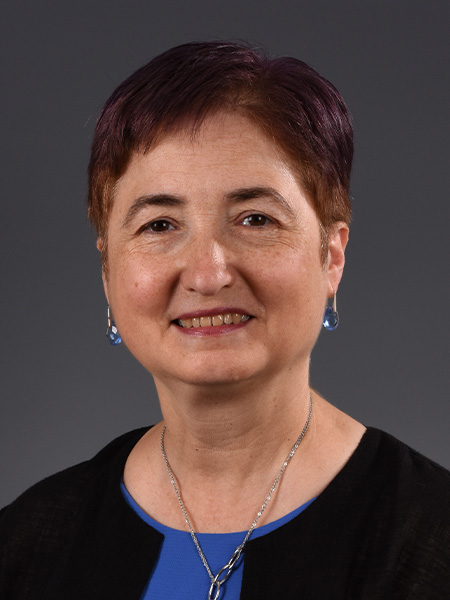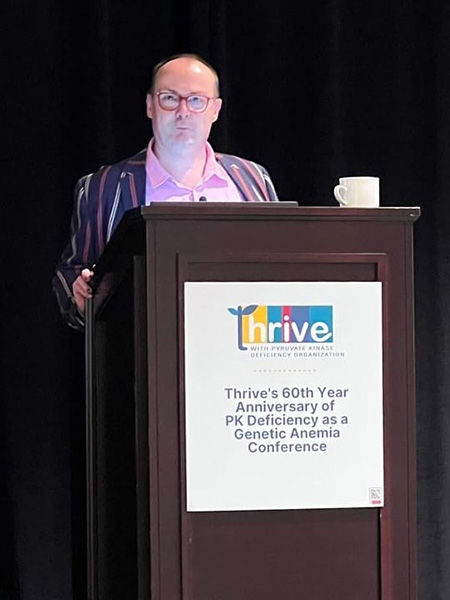Training for Person-Centred Value-Based Health Care (PCVBHC)
Key learning objectives
- Understand the transformative potential of PCVBHC and its application across clinical practice, patient advocacy, policy-making, industry development and health care system management to elicit and use individual values, goals and preferences, and improve health outcomes and system efficiency and equitability.
- Explore the fundamental principles and innovative methodologies that underpin PCVBHC, enabling you to incorporate these practices into clinical practice, strategic planning and operational frameworks.
- Develop essential key skills such as eliciting and using values, goals and preferences, shared decision-making, and strategic planning to effectively implement PCVBHC within your respective sectors.
Expected outcomes
- Create a customised PCVBHC implementation project tailored to your organisation's specific needs, ensuring you have a practical and actionable strategy to bring back and integrate effectively.
- Build connections with a diverse community of professionals dedicated to advancing PCVBHC across various sectors. Collaborate with experts to share insights, develop innovative strategies, and collectively advance PCVBHC principles, leading to holistic system enhancement.
- Each stakeholder group will develop a comprehensive understanding of individual values, goals, and preferences within the context of PCVBHC, ensuring that care strategies align closely with each person's unique needs from their sector's perspective.
- Strategies for understanding the values, goals, and preferences of individual patients.
- Methods to ensure that patient values, goals, and preferences guide the care they receive.
- Utilising these insights to promote health equity and address disparities in health care delivery.
- Using patient data to enhance our understanding of the value of care provided.
- Integrating Person-Centred Health Care, Value-Based Health Care, and Health Equity to implement Person-Centred Value-Based Health Care effectively.
- Strategising how policymakers can drive the adoption of Person-Centred Value-Based Health Care through incentives, regulatory frameworks, and fostering organisational culture change.
- Redesigning health information technology systems to optimally support the principles and practices of Person-Centred Value-Based Health Care.
- The significance of focusing on people’s values, goals, and preferences in health care.
- Methods for individuals to effectively express and advocate for their values, goals, and preferences within health care settings.
- Strategies to integrate user-centred design into the development of pathways and services to better meet patient needs.
- Approaches to ensure marginalized and vulnerable populations, such as indigenous communities, people with disabilities, and those experiencing homelessness, have opportunities to express their values, goals, and preferences in health care decision-making processes.
- Optimising resource allocation to ensure maximal value delivery within the health care system.
- Utilising an understanding of patient values, goals, and preferences to foster the development of sustainable health care systems.
- Aggregating data on people’s values, goals, and preferences to inform decision-making at both meso and macro levels, enhancing quality and guiding resource allocation.
- Cultivating a culture of person-centredness within health care organisations to prioritise patient needs and preferences in all aspects of care delivery.
- Understand how aligning with patients’ values, goals, and preferences can strengthen your value proposition to Health Technology Assessment agencies and payers.
- Explore strategies for industry collaboration with health care providers to ensure medicines are used in accordance with patient preferences, promoting sustainable reimbursement practices.
- Learn approaches to collaborate with payers and policymakers in developing reimbursement models that incentivise the attainment of patients’ health care goals.
Curriculum
| Week | Format | Delivery |
|---|---|---|
| Week 1 | Pre-recorded videos and pre-reading material. | (i) The theories of Value-Based Health Care, Person-Centred Health Care and Health Equity and (ii) mock consultation based on PCVBHC principles. |
| Week 2 | Pre-recorded video and pre-reading material. | (i) Approaches to support health literacy and (ii) approaches to support goal setting and preference elicitation. |
| Week 3 | Live (virtual) case study discussion. | Goal setting and preference elicitation in practice. |
| Week 4 | Live (virtual) study group session. | Working with their study group to share the first part of their implementation project plans. |
| Week 5 | Pre-recorded video and pre-reading material. | (i) Using shared decision making (SDM) in day to day practice and (ii) setting shared goals and SDM that align care with personal values, goals, and preferences. |
| Week 6 | Pre-recorded video and pre-reading material. | Implementing outcome and cost measurement in practice. |
| Week 7 | Live (virtual) case study discussion. | Shared decision making in practice. |
| Week 8 | Live (virtual) study group session. | Working with their study group to share the second part of their implementation project plans. |
| Week 9 | Pre-recorded video and pre-reading material. | Person-centred approaches to pathway design. Allocating resources in a PCVBHC system. |
| Week 10 | Pre-recorded video and pre-reading material. | (i) Changing the culture to enable PCVBHC implementation and (ii) building PCVBHC partnerships. |
| Week 11 | Live (virtual) case study discussion. | Using data in a PCVBHC system. |
| Week 12 | Live (virtual) study group session. | Working with their study group to share the final part of their implementation project plans. |
| Week 13 | Pre-recorded video and pre-reading material. | (i) Health care systems and PCVBHC, (ii) Policy and PCVBHC and (iii) Patient involvement in PCVBHC. |
| Week 14 | Pre-recorded video and pre-reading material. | (i) Navigating PCVBHC: Insights into R&D, value proposition and overall health care system sustainability.
and (ii) Public-private partnerships in PCVBHC: benefits, trends, and strategies. |
| Supplementary Resources | Podcasts | (i) Transforming health care: Exploring NHS Wales' Journey from VBHC to PCVBHC. (ii) Walk in their shoes: Patient insights into PCVBHC. (iii) Navigating PCVBHC integration: Insights from Amgen's success story with NHS Wales. (iv) Innovations in PCVBHC: Insights from leading researchers and implementers. (v) Empowering Patient Voices: The Role of Advocacy in Person-Centered Value-Based Health Care. |
PCVBHC online Training Programme Faculty




Pauline Boeckxstaens is a family physician in the Community Health Centre ‘Botermarkt’ in Ghent, Belgium. She is also an assistant professor at the Department of Public Health and Primary Care at Ghent University where she is building a research program on goal-oriented care.
The combination of research with a clinical position as a family physician enables her to integrate her clinical and research expertise into a practice-based research program with a strong connection to local stakeholders and to the current reform of primary health care in Belgium. In 2014 she completed her PhD on the topic of multimorbidity. She worked as a postdoctoral fellow in a Canadian study on patient centered innovations for people with multimorbidity. She was selected for the TUTOR-PHC program which is a one-year, pan-Canadian, interdisciplinary research capacity building program that has been training primary and integrated health care researchers and decision-makers from many disciplines since 2003. Building on strong local connections with stakeholders in health and welfare, she’s currently building a practice-based transdisciplinary research program on the operationalization and implementation of goal-oriented care across different settings. https://www.gocilc.org/


Alf Collins is NHS England’s Clinical Director, Personalised Care Group.
He was a community consultant in pain management and in parallel worked for a decade with the Health Foundation. He has researched and published widely on self-management support, shared decision making, care planning, co-production, patient activation and patient engagement.
He has honorary fellowships from the Royal College of Physicians and the Royal College of General Practitioners and is a Visiting Professor at Coventry University.


Arie Franx is a member of the steering committee on Value-Based Health Care at Erasmus Medical Center, Netherlands. He works on Value-Based Health Care with the Netherlands Federation of University Medical Centers, the Dutch Ministry of Health and the Netherlands Health care Institute. He was the chair of the global ICHOM Working Group developing the Pregnancy and Childbirth Standard Set of outcomes. Arie is co-founder and co-chairman of the Linnean Initiative (www.linnean.nl), a nationwide multidisciplinary network aiming to accelerate the implementation of Value-Based Health Care in the Netherlands. Arie holds an MD degree from the Free University in Amsterdam, Netherlands and a PhD degree from the University of Utrecht, Netherlands.


Thomas Kelley is current CEO of Sprink. Prior to this role, between 2018 and 2019, he was the National Clinical Advisor on Value- Based Health Care (VBHC) for the Welsh Government.
Between 2013 and 2018 he worked at the International Consortium for Health Outcomes Measurement (ICHOM). He established the London office in 2014 and subsequently led ICHOM’s work in the EMEA region between 2014 and 2017. In 2017 he took overall responsibility for ICHOM’s day-to-day operations across its London and Boston offices. He also had global responsibility for ICHOM’s strategic partnerships.
Prior to working at ICHOM he practiced as a physician at Oxford University Hospitals (OUH).
He received his BSc and MD from the University of Manchester, UK and MBA from the University of Oxford, UK.






Sally Lewis is a GP and has front-line experience of primary care at its most challenging.
She entered a career in medical management in 2011 and was appointed to Assistant Medical Director for value-based care in the Aneurin Bevan University Health Board in 2014.
Since 2018, she has been leading the national value-based healthcare programme in Wales. She has established the Welsh Value in Health Centre which is now part of the World Economic Forum’s Global Coalition for VBHC. She is an Honorary Professor at Swansea School of Medicine.


Sean Lybrand is the Global Strategic Lead for Amgen’s Access to Medicines unit. He has over 20 years’ experience in health, having started his research and health outcomes-focused career in academia in Australia, preparing evidence-based reviews for the Cochrane Collaboration and undertaking health outcomes research in rheumatology.
Sean has considerable experience in developing multistakeholder collaborations, and has established a range of important partnerships in health, including with academic centres, digital health agencies, and national governments. A key personal highlight of his partnership work was the development and initiation of the first public-private partnership for HPV vaccination in the developing world- initiating a national program in a collaboration between Merck (MSD), the Australian Cervical Cancer Foundation and the Royal Government of Bhutan, which is ongoing and has recently passed its 12th anniversary.
Sean was previously a Board member of the Australian Cervical Cancer Foundation. Aside from his Amgen role, he has an appointment as Adjunct Fellow at the Centre for the Health Economy at Macquarie University in Sydney, Australia, and is a Health Executive in Residence at University College London’s Global Business School for Health.
He holds a BA, BSc and MPH from the University of Queensland (AU) and a Graduate Certificate in Health Economics from Curtin University (AU).






Christobel Saunders is the James Stewart Chair of Surgery, the Head of the Department of Surgery at the University of Melbourne (Royal Melbourne Hospital precinct) and consultant surgeon in the Department of General Surgery at Royal Melbourne Hospital and the Peter MacCallum Cancer Institute. She is internationally recognised as one of Australia’s most prominent research-orientated cancer surgeons. She has substantially contributed to breast cancer research including clinical trials of new treatments, psychosocial, translational and health services research.
In recognition of her sustained career excellence and innovation, she has been publicly acknowledged through numerous awards and honours including Order of Australia 2018, the Uccio Querci della Rovere Award (2018), WA Women’s Hall of Fame Inductee (2018), WA Scientist of the Year (2017) and Cancer Council WA career Achievement Award (2021). She has performed research for over 30 years evaluating the efficacy and utility of therapy for early breast cancer.
In the past five years, she has published over 200 peer-reviewed journal articles, six letters to the editor/editorials, two research reports, two book chapters and one book. She sits on the boards of a number of health and research organisations including as Vice-President for All.can International and on the boards of All.can Australia, Breast Cancer Trials, the Australian Centre for Value Based Health Care and PathWest. Christobel is closely involved in strategic planning and management of health and cancer services in Australia including being on the Medicare Review Advisory Committee.


Andrea Srur is a Medical Doctor trained in Chile at Universidad Mayor. Following her training, she completed a MSc in Management and Organisational Innovation at Queen Mary University London (2012) and a MSc in Health Systems and Global Policies (2018) at Queen Mary University London. She was Head of the Non-Communicable Diseases Department at the Ministry of Health in Chile, working on NCD policies, strengthening the national network and bringing stakeholders together, and through what she developed an interest for Value-Based Health Care and joined the International Consortium for Health Outcomes Measurement (ICHOM) in London in 2016 as Outcomes, Analytics and Benchmarking Manager. At ICHOM Andrea supported the implementation of Value-Based Health Care in hospitals across the UK, Europe and South America. After ICHOM, and during the pandemic, Andrea was the Programme Manager of the National Children Diabetes Quality Improvement Programme for England and Wales at the Royal College of Paediatrics and Child Health (RCPCH) in London, UK. Since 2022, Andrea is the Associate Director for the Global Centre for Person-Centred Value-Based Health Care, managed by Sprink.




Gareth Roberts is a consultant nephrologist and associate medical director at Aneurin Bevan University Health Board.
He is clinical lead for the Value-Based Health Care programme.
He is clinical lead of the Welsh Renal Clinical Network and a research active consultant whose PhD focussed on inflammation and immunity. He is currently chief investigator of a national study looking at the socio-demographic factors that influence shared decision making in patients with advanced kidney failure as well.




Wilbert van den Hout is a health economist at the Biomedical Data Sciences department of the Leiden University Medical Center. He is experienced in conducting economic evaluations, alongside patient trials or using mathematical modeling. He has a particular focus on
- the use of costs in cost-effectiveness research
- Value-Based Health Care and
- supporting decision making at the patient, institutional and societal levels.
Podcasters
In this podcast series, we introduce you to diverse voices and perspectives, exploring topics through engaging discussions with knowledgeable experts and thought leaders.




















Alumni Testimonials
European Federation of Pharmaceutical Industries and Associations (EFPIA).
Cardiff and Vale University Health Board, NHS Wales.
[….] I particularly liked the metro mapping, goal setting PROM tool and Decision aids sessions for patients. I plan to test these in a number of projects. [….] It was also interesting to link with international attendees and discover that despite different health systems, we are not so different in other ways [….]
Swansea Bay University Health Board, NHS Wales.
Organisations We've Trained














Registration fees
| Category | Definition | Price |
|---|---|---|
| Supporting Partners and Members | Employees of Supporting Partners and Members of the Global Centre for PCVBHC. | Up to 15 free passes for the virtual education programme. Once free passes are allocated, fees will be charged according to the appropriate category. |
| Regular | Medium and large for-profit companies*. | £1500 |
| Concession | Public-sector organisations (including the publicly funded health sector), university staff and students, non-profit organisations, patient advocacy organisations, and small for-profit companies**. | £800 (Coupon code: concession-pcvbhc-2024) |
| Multiple (Regular) | When purchasing two or more ‘Regular’ places. | £800 per place. |
| Multiple (Concession) | When purchasing two or more ‘Concession’ places. | £500 per place. (Coupon code: concession-pcvbhc-2024) |
*Medium and large for-profit companies: More than 50 employees.
**Small for-profit companies: 1 to 49 employees.